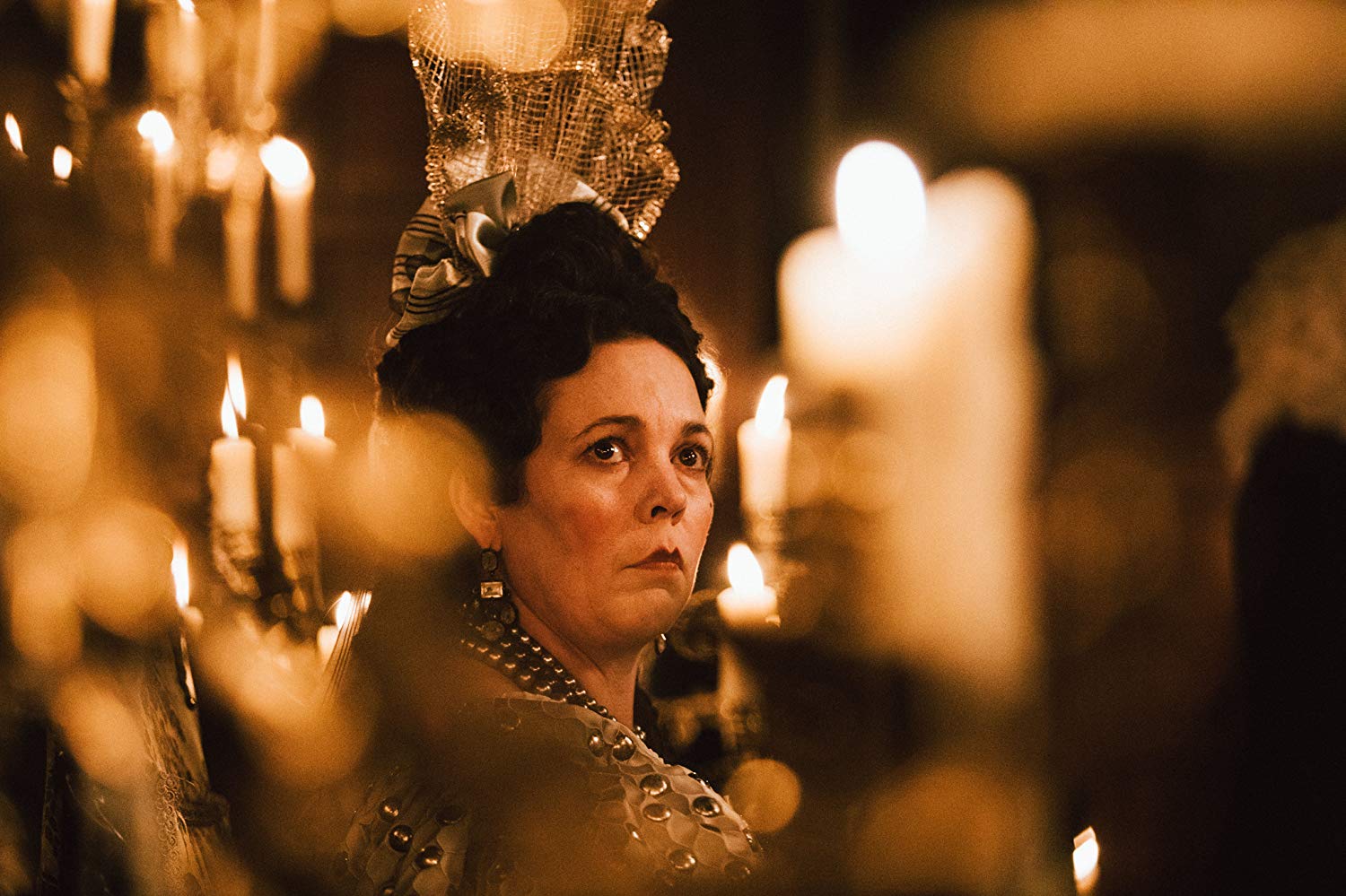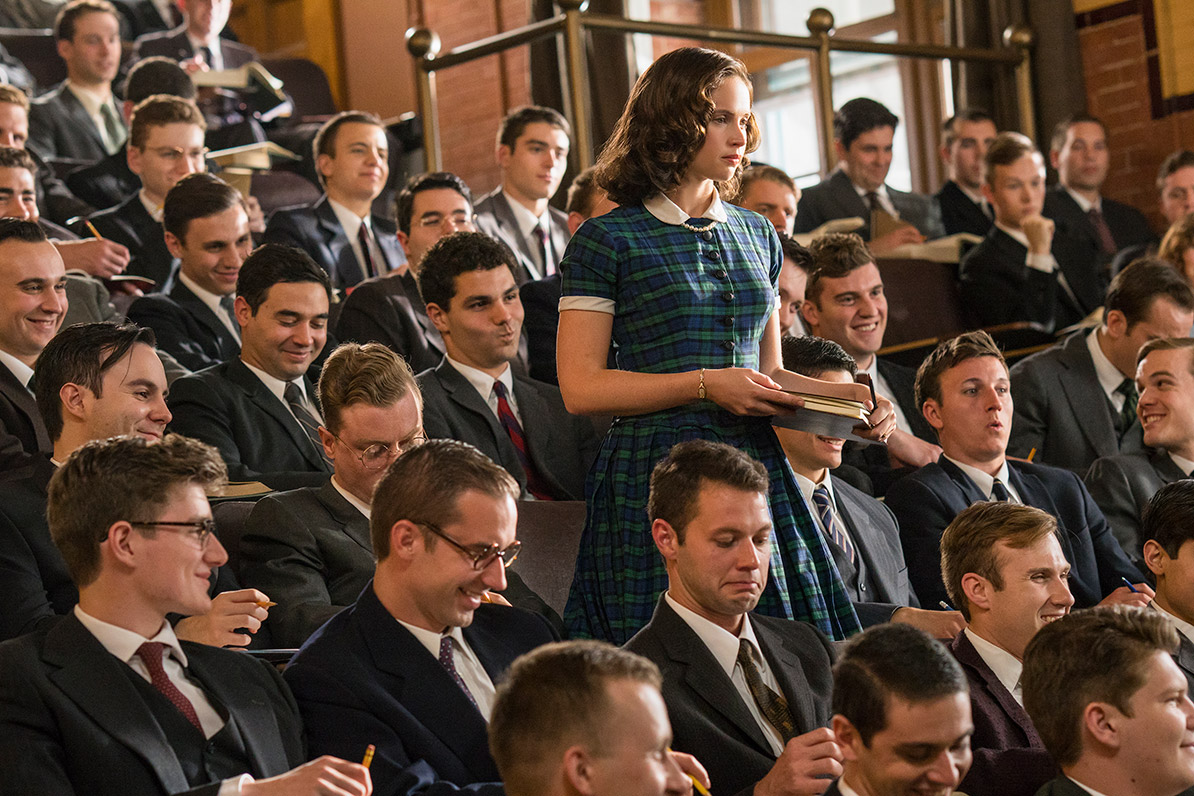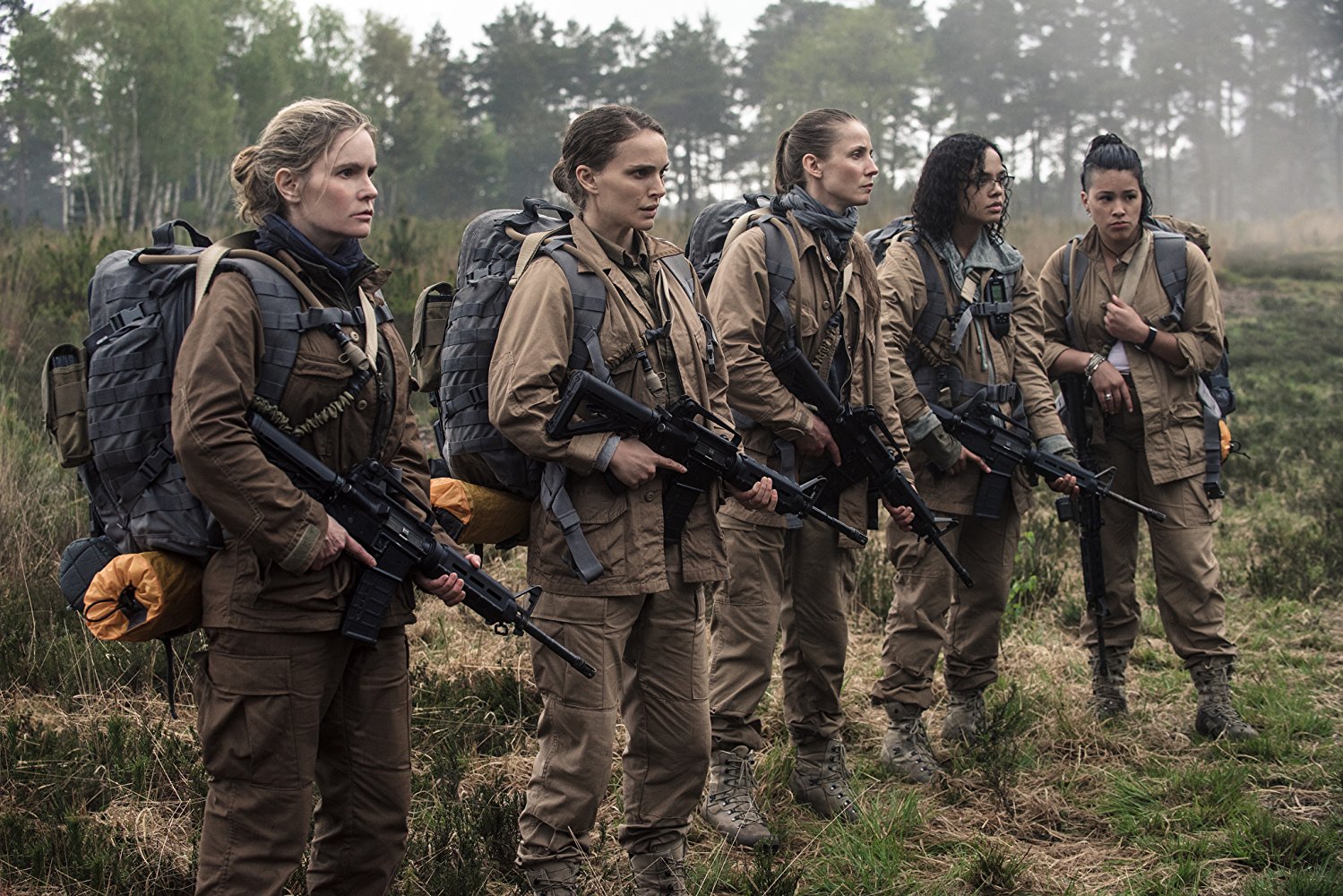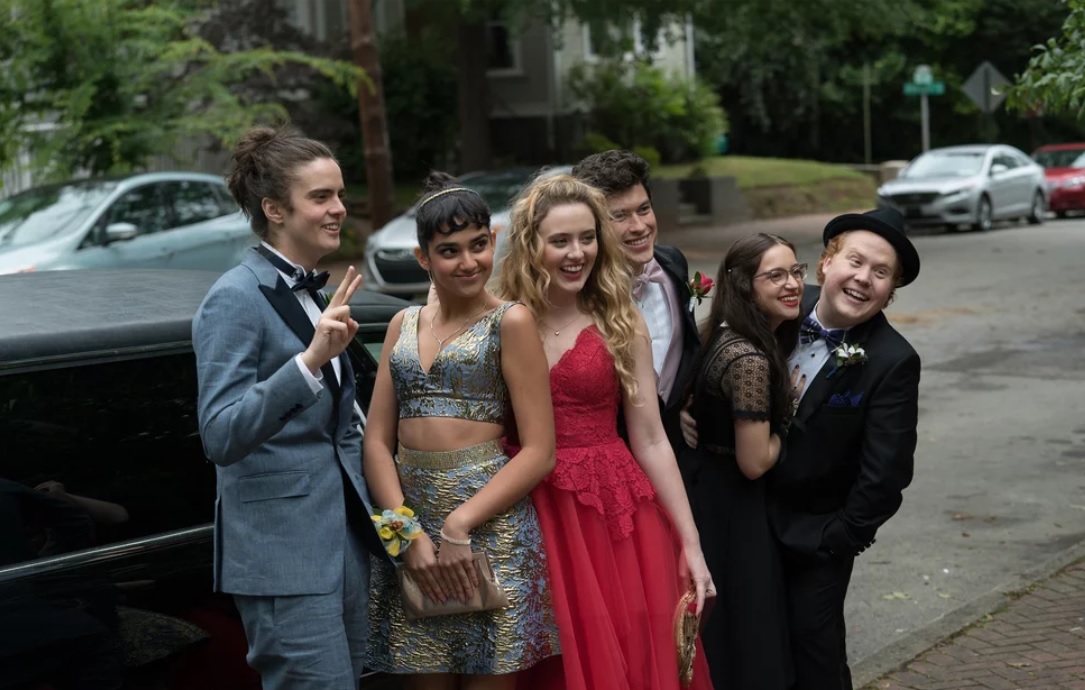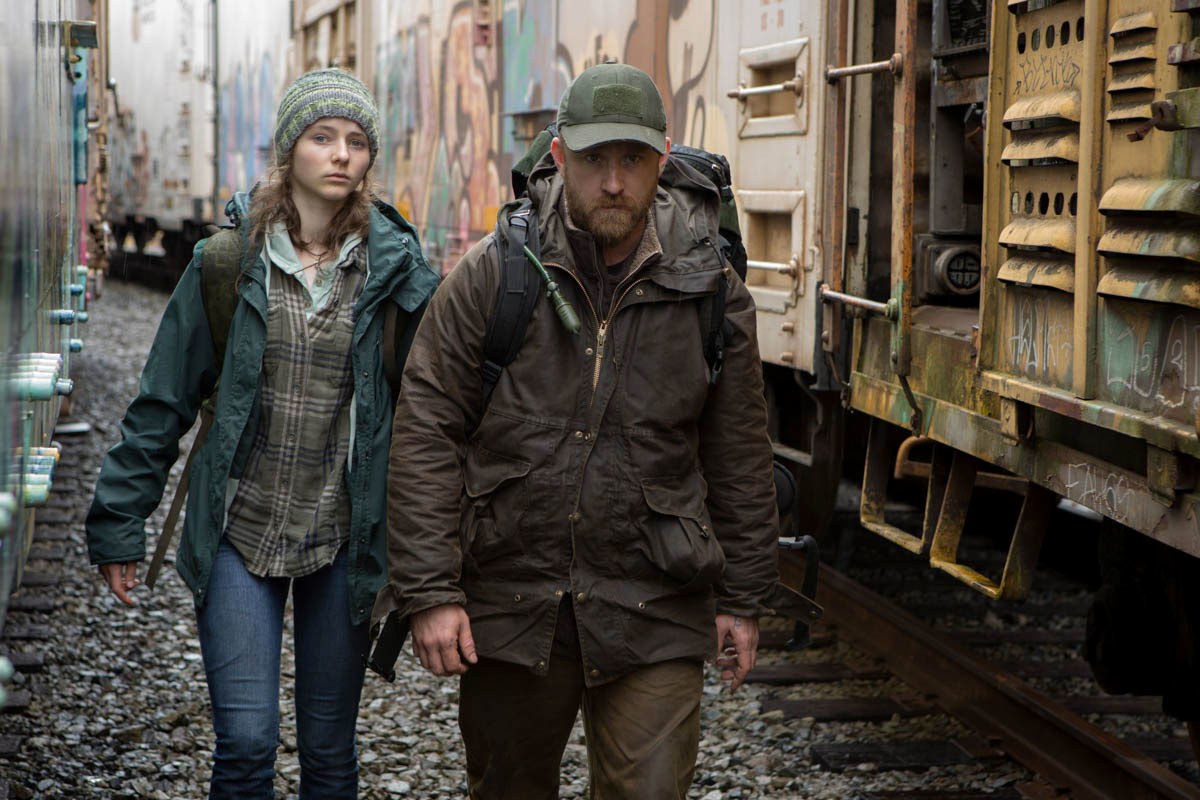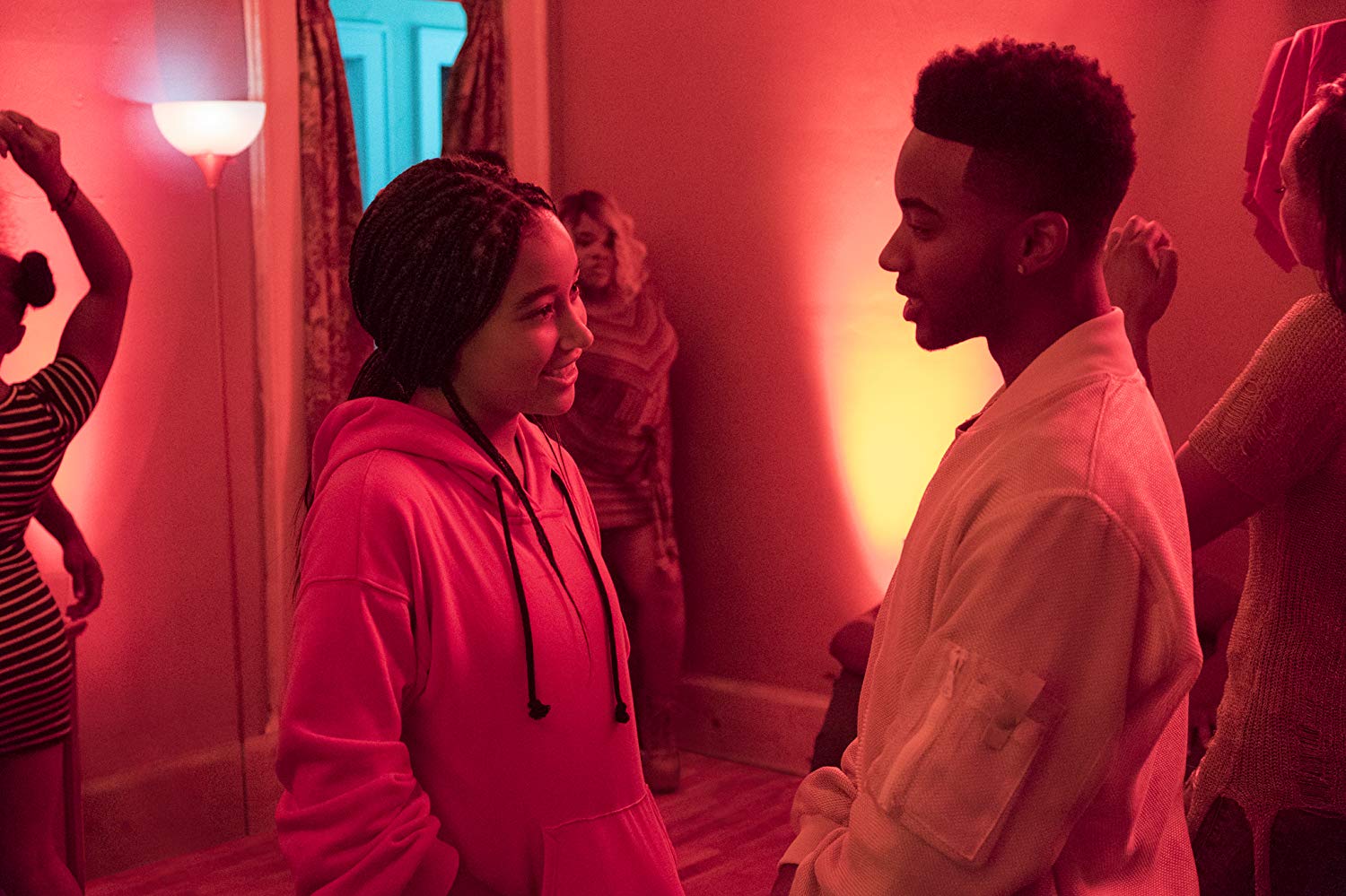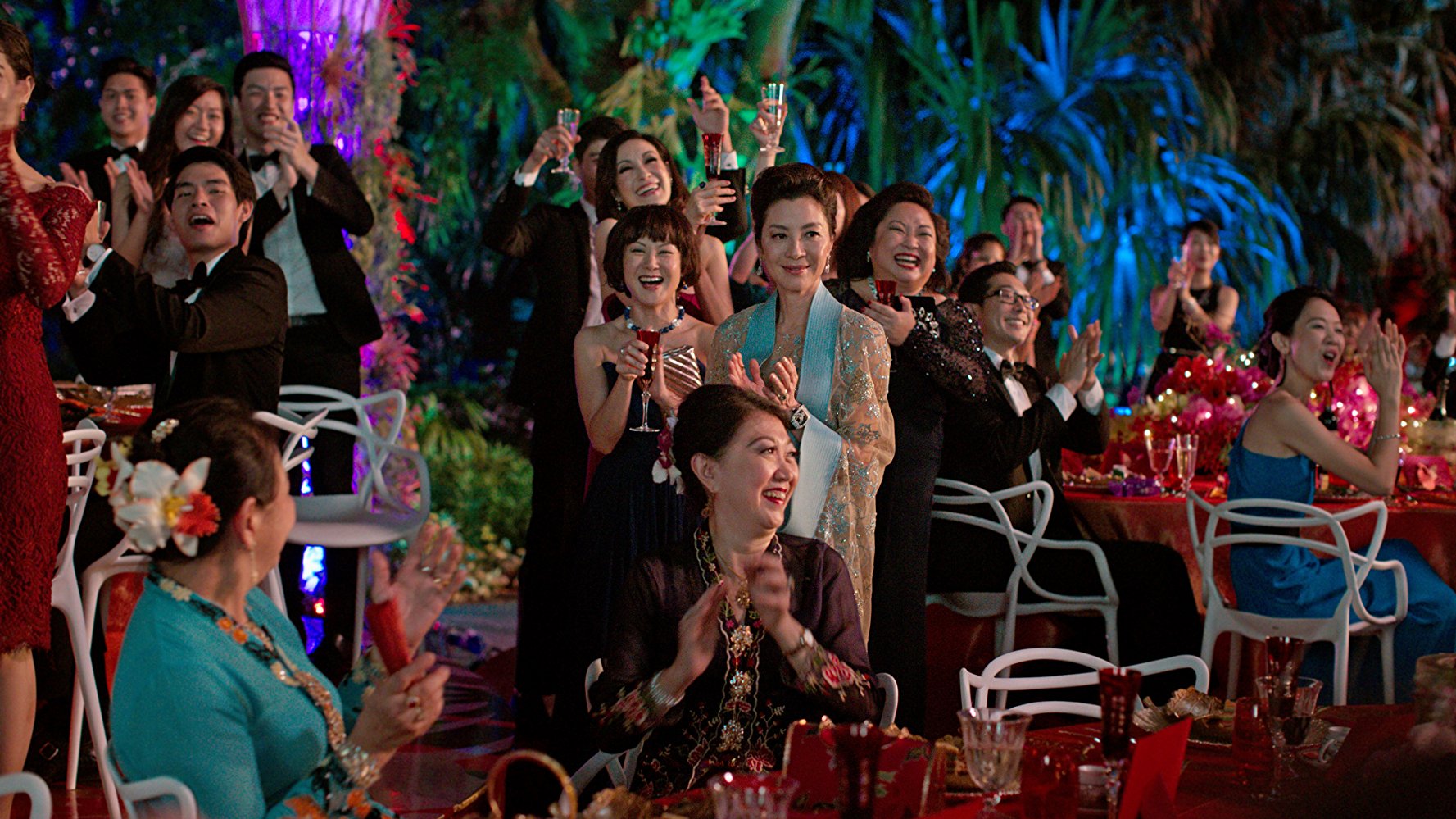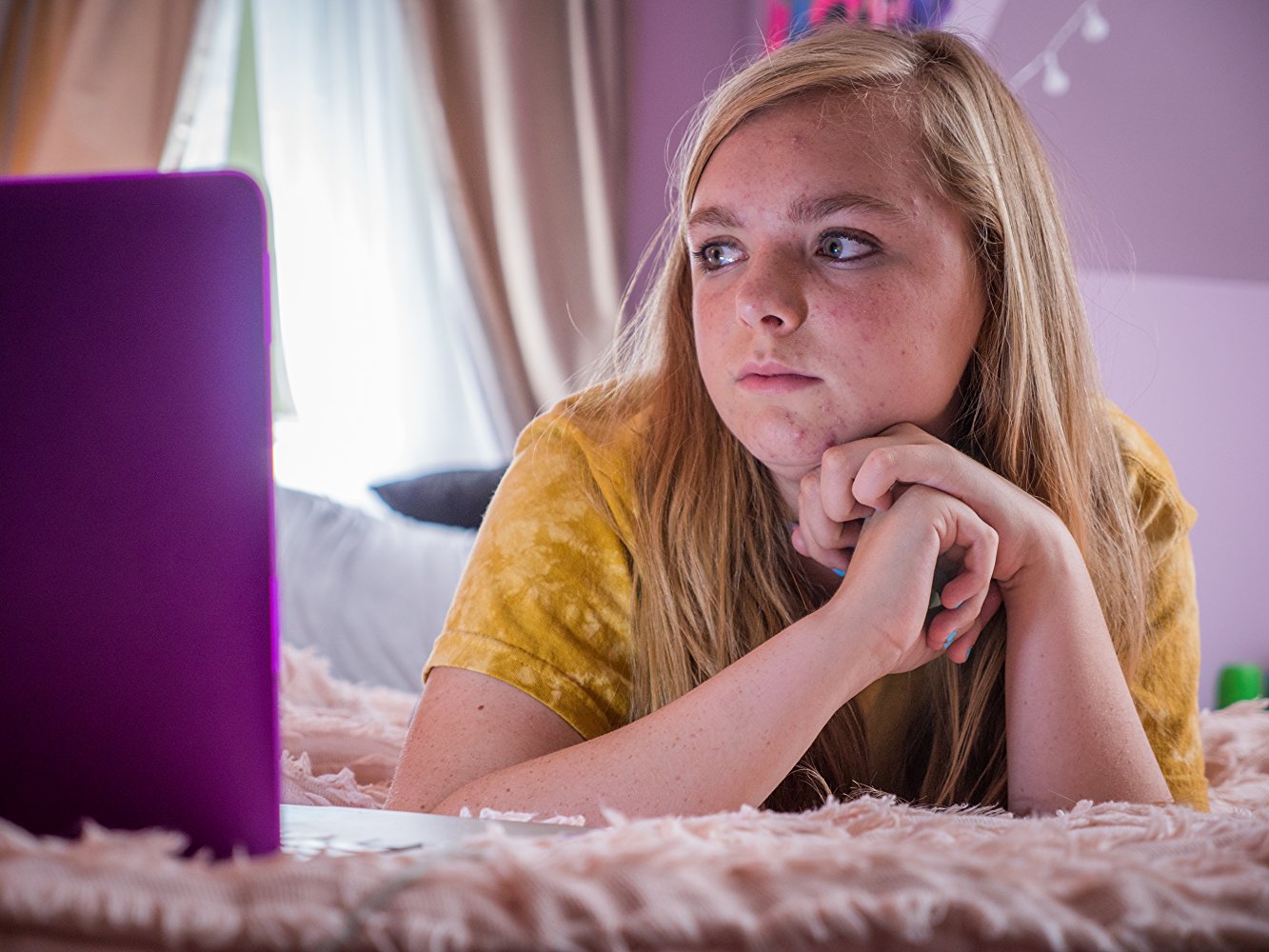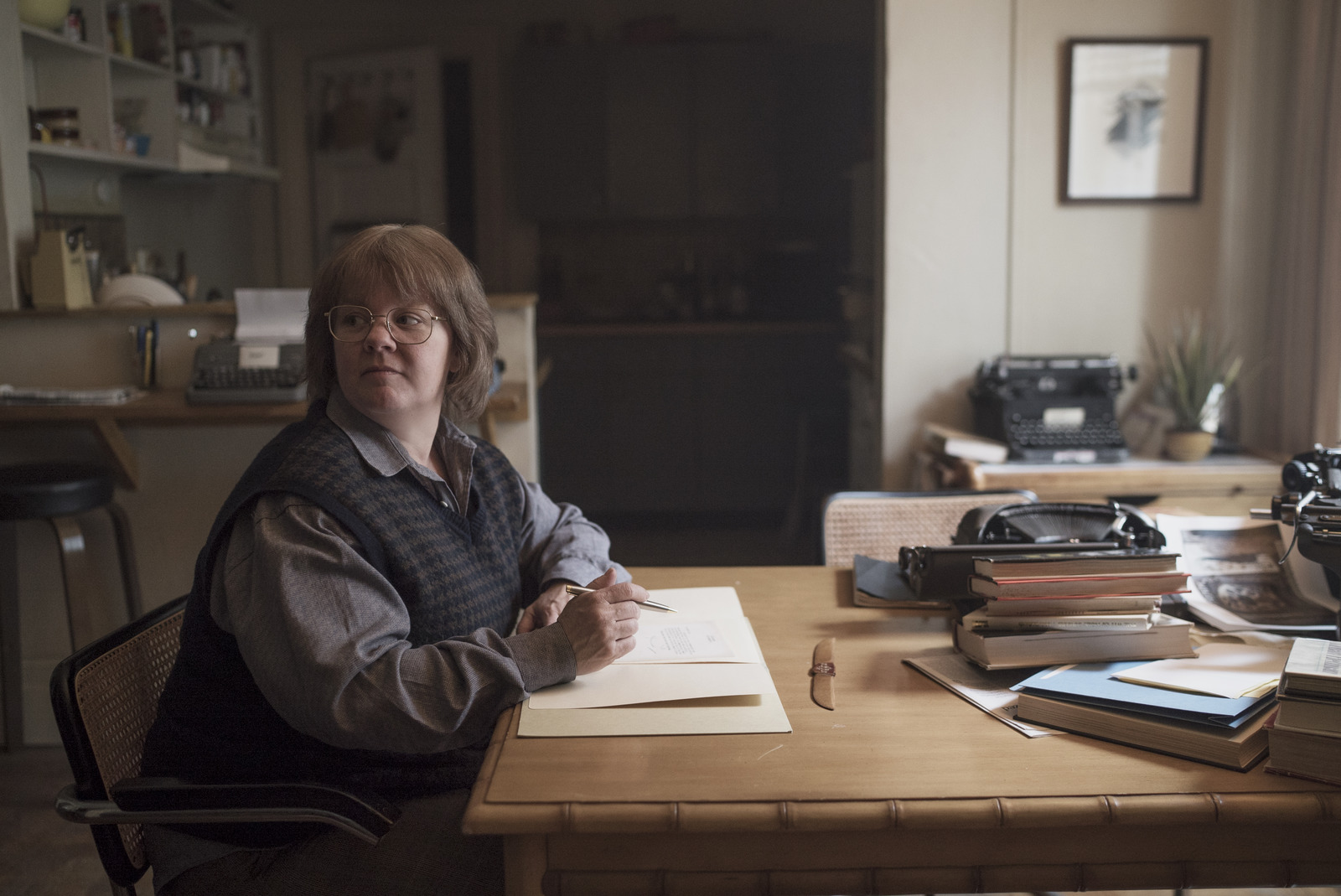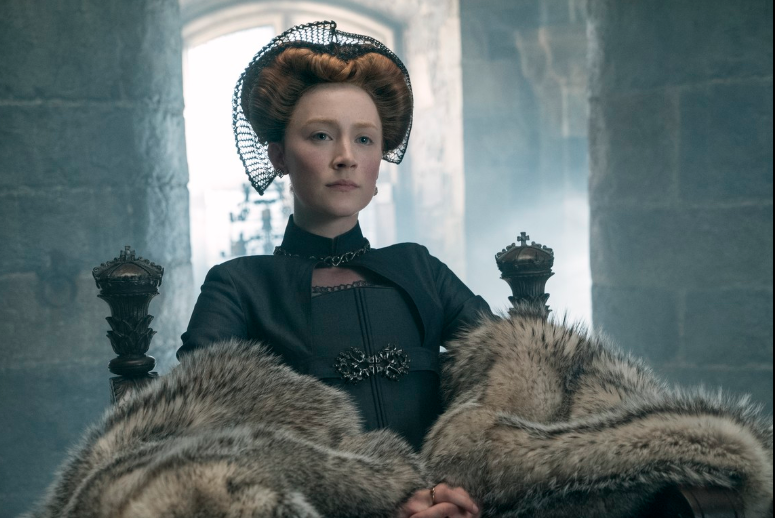Many of our favorite films saw female characters claiming or reclaiming their power: Mary Stuart set her sights upon the English throne, and two ladies-in-waiting realized winning Queen Anne’s heart also meant winning control of their lives. A young black woman turned to activism after witnessing her friend’s murder at the hands of a police officer. Three best friends decided to have sex on prom night, just because they wanted to, and a Chinese-American economics professor won the respect of her Singaporean boyfriend’s disapproving mother. And we can’t forget about Lee Israel, who turned to forgery to pay the bills and ended up being “a better Dorothy Parker than Dorothy Parker.”
Here are some of Women and Hollywood’s most loved films by and about women from 2018.
“The Favourite” – Written by Deborah Davis and Tony McNamara
What a pleasure “The Favourite” is to behold. It’s a rare delight to see a film with two interesting roles for women, and this dark royal comedy boasts three. Olivia Colman, Emma Stone, and Rachel Weisz make the most of the rare opportunity, with each offering a brilliant performance and seemingly having the time of their lives while doing so.
The period pic sees Stone and Weisz vying for the frail queen’s affections — and the power that comes along with it. A thoughtful and hilarious exploration of loyalty, love, and servitude “The Favourite” is a showcase for its hugely talented stars and a surprisingly moving portrait of three complicated women with complex and compromised agendas.
“I Am Not a Witch” – Written and Directed by Rungano Nyoni
Set in Zambia, “I Am Not a Witch” tells the story of Shula (Maggie Mulubwa), an eight-year-old girl accused of witchcraft in a rural village. The child is put on trial, found guilty of being a witch, and sentenced to life on a state-run witch camp. There, she’s given a choice: embrace her life as a witch — and accept being tethered to a long white ribbon that keeps her in captivity — or become a goat. She chooses the former.
Rungano Nyoni’s award-winning first feature deals with weighty subject matter, to be sure, but “I Am Not a Witch” is also surprisingly funny. Tone is so important in this movie, and Nyoni nails it, bringing laughs one minute and drawing disturbing, thoughtful links between superstition, exploitation, and misogyny the next.
An impressive and self-assured debut, “I Am Not a Witch” is a bold vision, and we can’t wait to see what Nyoni does next.
“On the Basis of Sex” – Directed by Mimi Leder
“On the Basis of Sex” is a movie that takes place in the 1950s but, sadly, feels like it could be set yesterday or tomorrow. The early years of the now-notorious RBG are basically a superhero origin story without the flying.
RBG (Felicity Jones) graduates at the top of her class at Columbia yet can’t get a job because she is a woman. Her husband, Marty (Armie Hammer) — and this is one of the best marriages depicted on-screen — finds her a case that will allow her to challenge laws that discriminate against women.
The movie is also a reminder that even Supreme Court Justices were at one time inexperienced, and there are some painful scenes where Ruth has to figure out how to argue a case. Those moments are inspirational. She changed the law, and she changed our world.
“Annihilation”
Who knew a sci-fi pic featuring a polymorphous extraterrestrial could make for such a powerful exploration of grief, depression, and self-destruction? Yet that’s exactly what “Annihilation” is. It’s also a testament to women’s endurance. The film sees a group of five women (Natalie Portman, Jennifer Jason Leigh, Gina Rodriguez, Tessa Thompson, and Tuva Novotny) going into the Shimmer, a mysterious area invaded by aliens, to finish a mission started by men. Each of the women is going through her own personal hell and the Shimmer’s oddities just compound her pain. Some succumb to it, others embrace it, and others still learn how to overcome it.
“Annihilation” doesn’t offer easy answers, or even a cut-and-dried ending, but it stays with you. Like the Shimmer’s effect on its visitors, the film will leave you changed.
“Blockers” – Directed by Kay Cannon
There’s no shortage of teen comedies out there, but few are as sex positive as “Blockers,” Kay Cannon’s directorial debut. The premise is groan-worthy: three high school girls decide to have sex on prom night, and their parents freak out. However, the execution is feminist and fun.
From the beginning of the movie, you understand why the parents (Leslie Mann, John Cena, and Ike Barinholtz) want to stop their daughters from losing their virginity, but you never think they are in the right. How could you when the girls (Kathryn Newton, Geraldine Viswanathan, and Gideon Adlon) are as confident and smart and savvy as they are? They love and respect their parents, but are more than capable of making this particular decision on their own. Even better, “Blockers” flips the standard teen sex romp trope. Finally, the girls are in the driver’s seat and the guys are just along for the ride.
“Leave No Trace” – Directed by Debra Granik; Written by Debra Granik and Anne Rosellini
Debra Granik’s latest tells the story of a father and daughter whose lives are upended when local authorities put an end to their idyllic existence in the forests of Portland, Oregon. Tom (Harcourt McKenzie) and Will (Ben Foster), a veteran with PTSD, have spent years living off the grid and on the land when they are discovered and put into social services.
Granik’s 2010 drama “Winter’s Bone” famously launched the career of Jennifer Lawrence and “Leave No Trace” is further evidence that the filmmaker and her casting directors, Kerry Barden and Paul Schnee, have a real talent for finding gifted newcomers. McKenzie shines as a precocious teen struggling to do good by her father and explore her burgeoning desire to live a more conventional life.
Few films focus on father and daughters, and those that do are often bogged down by cliches and saccharine plots. “Leave No Trace” is not. It’s a complicated, unsentimental story about people who are doing their best to love one another as well as they can — even if that means letting go.
“Support the Girls”
Regina Hall deservedly won the New York Film Critics Circle Best Actress Award for her turn in “Support the Girls.” Her Lisa, the manager of a “Hooters”-esque sports bar, is great at her job, protective of her employees, and nearing the end of her rope.
Taking place mostly over a single day, “Support the Girls” is praise-worthy enough for its depiction of working class life and its diverse, largely female cast (which includes Haley Lu Richardson, Shayna McHayle, and Lea DeLaria). However, what makes it really special is its willingness to delve into the bind so many contemporary women find themselves in. What do you do when you know you’re smart, talented, and deserve more, but can’t quite move forward? Or when your job means ignoring your personal ideals
Lisa is better than Double Whammies — there’s no doubt about that. But she’s also a black woman in a society that doesn’t value her. The only option she has is to integrate her shitty job with as much grace and integrity as she can muster. It’s not a perfect solution, but it’s mostly enough.
“The Wife” – Written by Jane Anderson
Maybe “The Wife” will finally get Glenn Close her Oscar — she certainly deserves the honor for playing Joan Castleman, the long-suffering spouse of Great American Novelist Joe Castleman (Jonathan Pryce). Based on Meg Wolitzer’s book of the same name, “The Wife” is an extremely timely take on the sacrifices women are expected to make for their men — even if the film is set in the early ‘90s. Joan isn’t just Joe’s wife: she’s his strongest ally, his most trusted confidante, his makeshift doctor, and the person he turns to when he needs an ego-boost. Mostly that’s alright with Joan, but when Joe receives the Nobel Prize for Literature, something changes. Suddenly being a genius’ other half isn’t enough anymore.
At turns cathartic, shocking, and infuriating, “The Wife” is an important reminder that women have just as much to say and contribute as men. We deserve the chance to be Great, too.
“The Hate U Give” – Written by Audrey Wells
Starr (Amandla Stenberg) is a young woman who keeps secrets. She keeps her real self secret from the kids at her private school, and she keeps her school self secret from her friends from the neighborhood. But all her worst nightmares come true — and her worlds collide — when she sees a longtime friend shot and killed during a traffic stop. This shatters her, and she struggles with how to stand up for her friend in a difficult situation involving law enforcement and the local drug king pin.
Stenberg beautifully embodies this predicament and, in the process, takes herself to a whole new level as an actress.
“Crazy Rich Asians” – Written by Adele Lim and Peter Chiarelli
As the $174 million it made at the domestic box office suggests, audiences were hungry for a film like “Crazy Rich Asians.” And the effervescent rom-com, the first studio movie with a mostly-Asian or Asian-American cast since 1993’s “The Joy Luck Club,” did not disappoint.
There are plenty of romantic comedy staples in “Crazy Rich Asians” — a huge wedding, lovers from very different worlds, disapproving mothers, a makeover sequence — but the film’s fresh, culturally-specific perspective makes them feel new again. And as swoon-worthy as Henry Golding’s Nick Young is, it’s the women who make the film memorable. Constance Wu brings a down-to-earth, wry warmth to her Rachel Chu, a fish out of water among Asia’s super-rich. Awkwafina, of course, steals every scene she’s in as Peik Lin. And Michelle Yeoh’s Eleanor Young — proud, unapologetic, and not to be trifled with — deserves a movie all her own.
“Eighth Grade”
Audiences have been falling in love with “Eighth Grade” since its debut at Sundance in January, and that’s largely thanks to breakout star Elsie Fisher’s performance. The pic sees 13-year-old Kayla (Fisher) dealing with the highs and lows of her final week in the eighth grade as she looks onward to high school. “Eighth Grade” never belittles Kayla or her perception of the world — it takes the teen and her concerns seriously.
The ultra-realistic depiction of Kayla’s experiences in the classroom and outside of it left many averting their eyes — some scenes are simply too awkward to behold, making the coming-of-age dramedy feel like a harrowing experience at times. But the underdog story is ultimately a hopeful one, and left us wishing we could follow Kayla and her loving single dad (Josh Hamilton) further along in their journey.
“The Rider” – Written and Directed by Chloé Zhao
“The Rider” is a small, poetic film and we mean that in the best way. Based on the true story of lead actor Brady Jandreau and his family and friends, the film explores masculinity and poverty. It also brings us onto a reservation in South Dakota and investigates how Native Americans are systemically ignored. Writer-director Chloé Zhao takes us inside these people’s lives and their community in a way we’ve never seen before. “The Rider” is a beautiful gift to the world.
“Can You Ever Forgive Me?” – Directed by Marielle Heller; Written by Nicole Holofcener and Jeff Whitty
Biographer-turned-forger Lee Israel is the role Melissa McCarthy was born to play. The main character of Marielle Heller’s “Can You Ever Forgive Me?” is a cross between the brash, foul-mouthed roles that made McCarthy famous (“Bridesmaids,” “The Heat”) and her quieter turn as “Gilmore Girls’” Sookie St. James.
Lee is unpleasant and curses a lot, but you don’t have to look too hard to see her vulnerability. Sure, she enjoys writing phony letters from literary figures like Dorothy Parker, and loves that they are paying her bills, but it’s desperation that initially led her to the situation. Lee is told over and over throughout “Can You Ever Forgive Me?” that there’s no place for her or her work — so she decides to create one. She does so without self-doubt or apology. It’s wonderful to behold and McCarthy pulls it off brilliantly.
“Mary Queen of Scots” – Directed by Josie Rourke
It’s a little crazy to say Mary, Queen of Scots is the perfect role for Saoirse Ronan because it’s likely — in what is sure to be an extensive career — she will find many characters that seem perfect for her. That’s just how good she is. She’s glorious, she’s regal, she’s young, she’s vengeful, she’s all those things and so much more in theater director Josie Rourke’s first feature.
“Mary Queen of Scots” feels very theatrical, a testament to Rourke, with Ronan’s Mary arriving back in Scotland from France as a young widow with a country to rule. But Mary’s ambition is not just to rule Scotland: she believes she is the rightful heir to England’s throne as well, and constantly challenges her cousin, Queen Elizabeth I (Margot Robbie).
It’s divine to watch two women rule with the men around trying to give them advice and keep up. Inevitably, Mary and Elizabeth are both betrayed, and one of the harshest points of the film is a reminder of how difficult leadership is and how trust at times is transactional — especially for isolated female leaders.
“You Were Never Really Here” – Written and Directed by Lynne Ramsay
Lynne Ramsay puts an impressionistic spin on the thriller genre in “You Were Never Really Here,” an action-packed revenge story that sees Joaquin Phoenix playing a veteran-turned-hitman. Joe has a reputation for tracking down missing girls — and brutalizing the men who have wronged them. His latest gig finds him employed by a powerful politician. Finding the man’s daughter proves to be just the beginning of the former FBI agent’s journey with her.
The winner of Best Screenplay at Cannes 2017, “You Were Never Really Here” fuses genre and art house sensibilities, and the result is mesmerizing. Ramsay famously gave Phoenix an audio file — containing fireworks mixed with gunshots — to get a sense of Joe’s inner life, and her unconventional advice worked wonders. The pair made magic together. As brutal and unsparing as “You Were Never Really Here” is, it’s impossible to look away from.

